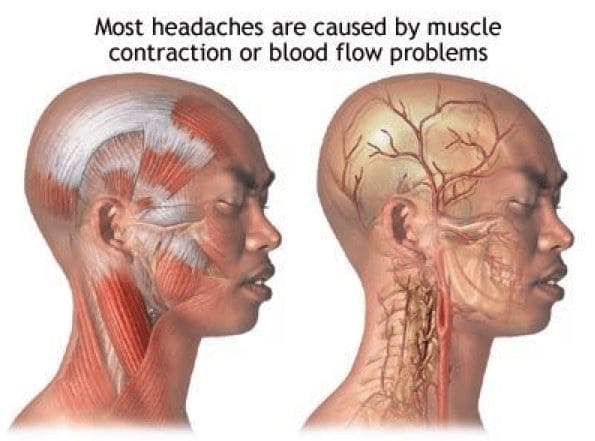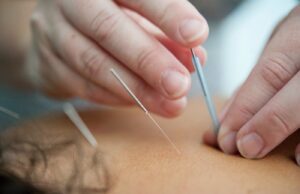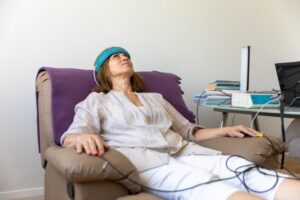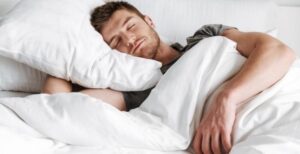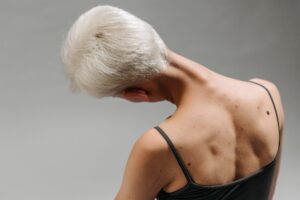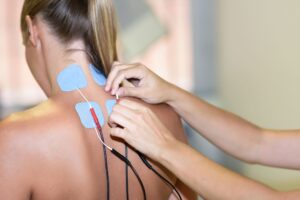Tension headaches are one of the most common types of headaches, with estimates suggesting that up to 78% of people experience tension headaches at some point in their lives. These types of headaches are typically characterized by a feeling of tightness or pressure around the head and can cause a variety of symptoms, such as difficulty concentrating, difficulty sleeping, sensitivity to light or sound (if both together, it is more likely migraine), and more. Although occasional tension headaches are normal, chronic tension headaches can be interfere with day-to-day activities. Fortunately, there are a variety of techniques that can help to reduce the intensity or frequency of tension headaches. Keep reading for 16 simple and effective techniques for tension headache relief below.
What are Tension Headaches?

Tension headaches are primarily caused by muscle contractions in the neck and head. They are usually described as feeling like a band of tightness or pressure around the head and can range from mild to severe pain. Symptoms of tension headaches also include fatigue, poor concentration, and sensitivity to light or sound.
Causes of Tension Headaches
Muscle Contraction
One of the most common causes of tension headaches is muscle contraction. This occurs when certain muscles in the neck and scalp become overly tense, leading to pressure on the surrounding nerves and blood vessels. This can cause a dull, aching pressure pain ranging from mild to moderate. If the pain is throbbing or severe, it is more likely to be migraine than tension headache.
Stress
Stress is also a common cause of tension headaches. When people are stressed, their muscles can become tense and remain that way for prolonged periods. This can lead to tension-type headaches and other physical symptoms such as fatigue and poor concentration.
Dehydration
Dehydration can also lead to tension headaches, as it causes the blood vessels in the brain to constrict, leading to a decrease in blood flow to the tissues and muscles. This can cause the muscles in and around the head to become tense, resulting in a headache.
Poor Posture
Poor posture can be another contributing factor to tension headaches. When you slouch or maintain poor posture, your head and neck are forced into an unnatural position, which strains the muscles in these areas. Over time, this strain can cause them to become tense and tight, leading to increased pressure on the nerves and blood vessels in the area and resulting in tension headaches.
Best Medicine for Tension Headache Relief
Here are some of the medicines you could use to relieve tension headaches:
OTC Pain Relievers
Over-the-counter pain relievers such as ibuprofen and acetaminophen can be effective for treating mild to moderate tension headaches. These medications work by reducing inflammation and providing relief from pain.
Muscle Relaxants
Muscle relaxants such as cyclobenzaprine (Flexeril) can also be effective for tension headaches. These medications work by relaxing the muscles in the neck and scalp, which helps to reduce pressure on the nerves and blood vessels in the area, resulting in relief from pain.
Antidepressants
Certain antidepressants, such as amitriptyline (Elavil), can also effectively treat tension headaches. These medications work by increasing serotonin levels in the brain, which helps reduce muscle tension and relieve pain.
Tension Headache Relief Techniques You Can Use
In addition to the medication options noted above, there are a variety of non-medicinal techniques that can help to reduce the intensity or frequency of tension headaches. From massage therapy and acupuncture to posture correction exercises and relaxation techniques, here are 16 simple yet effective techniques for relieving tension headaches.
Stress management techniques for tension headache relief
Stress can be a major cause of tension headaches, so it’s important to ensure you’re managing your stress levels. Techniques such as meditation, deep breathing exercises, and yoga can help you relax your body and mind and reduce the risk of tension headaches.
Massage therapy
Massage therapy is an effective way to relax tense muscles and relieve tension headaches. A massage therapist can work on the neck, shoulders, and head to help reduce muscle tension, increase circulation, and relieve pain.
Acupuncture
Acupuncture is another effective technique for relieving tension headaches. It works by helping to balance the body’s energy and relieve muscle tension, which can help reduce the intensity of a headache.
Posture correction exercises
Poor posture can lead to tension headaches, so it’s important to maintain proper posture throughout the day. Regular posture correction exercises can help strengthen the muscles in your neck and back, helping to reduce the risk of tension headaches.
Hot and cold therapy
Hot or cold compresses can be used to relieve tension headaches. Applying a hot compress to the neck, head, or temples can help relax tense muscles and reduce pain. Cold compresses or cold therapy caps can provide relief from inflammation in the area.
Biofeedback
Biofeedback is a technique that involves using electronic monitoring to measure and record vital bodily functions, such as muscle tension or heart rate. This can help you become aware of how your body responds to stress, allowing you to take steps to reduce the risk of tension headaches.
Stretching
Stretching can be an effective way to relax tense muscles in the neck and head. You can do simple stretches such as rotating your head from side to side or stretching your arms up over your head. If you have a lot of neck ache and tension, discussing the role of a course of neck physical therapy with your doctor is a good consideration.
Relaxation techniques
Relaxation techniques such as progressive muscle relaxation, meditation, and deep breathing exercises can help reduce stress levels, relax tense muscles, and relieve tension headaches.
Herbal remedies
Certain herbs, such as lavender, chamomile, and peppermint, can help reduce stress levels and relieve tension headaches. You can take these herbs in the form of tea or aromatherapy oils.
Sleep
Getting enough sleep is essential for your overall health and can also help reduce the risk of tension headaches. Aim for at least 7-8 hours of sleep each night to give your body time to rest and recover from stress.
Nutrition
Eating a healthy and balanced diet reduces the risk of tension headaches. Ensure you’re getting enough of the essential vitamins and minerals, such as magnesium, calcium, B vitamins, and omega-3 fatty acids. Limiting your processed and sugary foods intake can also help reduce the risk of tension headaches. In addition, drinking plenty of water can help keep your body hydrated and reduce muscle tension.
Cognitive Behavioral Therapy
Cognitive behavioral therapy (CBT) is a form of psychotherapy that can help to reduce stress and manage tension headaches. It works by helping you identify and change negative thought patterns that can lead to high-stress levels and trigger tension headaches. CBT can also help you learn coping skills for managing stress and relaxation techniques for relieving tension headaches.
Exercise
Physical activity is a great way to reduce stress, release endorphins (natural pain relievers released by the brain), and prevent tension headaches. Aim for at least 30 minutes of moderate-intensity activity daily to help reduce stress levels and the risk of tension headaches.
Neck and shoulder exercises
Certain neck and shoulder exercises can help strengthen the muscles in these areas and relieve tension headaches. Try exercises such as shoulder shrugs, head rolls, or chin tucks to stretch and relax tight muscles. You can also use self-massage techniques on your neck and shoulders to help relieve pain. A good physical therapist treating the neck and shoulders can be very effective here.
TENS
Transcutaneous electrical nerve stimulation (TENS) is a procedure that involves using a device to deliver low-voltage electric signals to the skin. This can help relax tense muscles, reduce pain, and relieve tension headaches. Talk to your doctor about whether or not TENS might be an effective treatment option for you.
Steam inhalation and Neti pot therapy for sinus relief
Steam inhalation and Neti pot therapy can help relieve congestion in the sinuses, which can cause tension headaches. Steam inhalation involves inhaling steam to clear out the sinuses, while Neti pot therapy involves using a special pot to flush out the nasal passages with saline water. These treatments may provide some relief from tension headaches caused by sinus problems.
Talk to Your Healthcare Provider
If you’re suffering from chronic tension headaches, it’s important to talk to your healthcare provider for a full evaluation, including neurological exam. They can help identify what may be causing your headaches and recommend treatments to help relieve the pain. In some cases, medications such as analgesics or muscle relaxants may be prescribed to manage tension headache pain.
Final Thoughts
With these tips and treatments, you can reduce your risk of tension headaches and relieve the pain when they occur. Remember to make lifestyle changes such as reducing stress levels, getting enough sleep, and eating a healthy diet to avoid tension headaches. In addition, talk to your healthcare provider about treatment options that may be right for you. With the right combination of lifestyle changes and treatments, you can manage your tension headaches and return to living your life.
IF YOU HAVE HEADACHE, MIGRAINE, OR FACIAL PAIN AND ARE LOOKING FOR ANSWERS ON ANYTHING RELATED TO IT, A HEADACHE SPECIALIST IS HERE TO HELP, FOR FREE!
FIRST, LET’S DECIDE WHERE TO START:
IF YOU HAVE AN EXISTING HEADACHE, MIGRAINE, OR FACIAL PAIN DIAGNOSIS AND ARE LOOKING FOR THE LATEST INFORMATION, HOT TOPICS, AND TREATMENT TIPS, VISIT OUR FREE BLOG OF HOT TOPICS AND HEADACHE TIPS HERE. THIS IS WHERE I WRITE AND CONDENSE A BROAD VARIETY OF COMMON AND COMPLEX MIGRAINE AND HEADACHE RELATED TOPICS INTO THE IMPORTANT FACTS AND HIGHLIGHTS YOU NEED TO KNOW, ALONG WITH PROVIDING FIRST HAND CLINICAL EXPERIENCE FROM THE PERSPECTIVE OF A HEADACHE SPECIALIST.
IF YOU DON’T HAVE AN EXISTING HEADACHE, MIGRAINE, OR FACIAL PAIN DIAGNOSIS AND ARE LOOKING FOR POSSIBLE TYPES OF HEADACHES OR FACIAL PAINS BASED ON YOUR SYMPTOMS, USE THE FREE HEADACHE AND FACIAL PAIN SYMPTOM CHECKER TOOL DEVELOPED BY A HEADACHE SPECIALIST NEUROLOGIST HERE!
IF YOU HAVE AN EXISTING HEADACHE, MIGRAINE, OR FACIAL PAIN DIAGNOSIS AND ARE LOOKING FOR FURTHER EDUCATION AND SELF-RESEARCH ON YOUR DIAGNOSIS, VISIT OUR FREE EDUCATION CENTER HERE.


